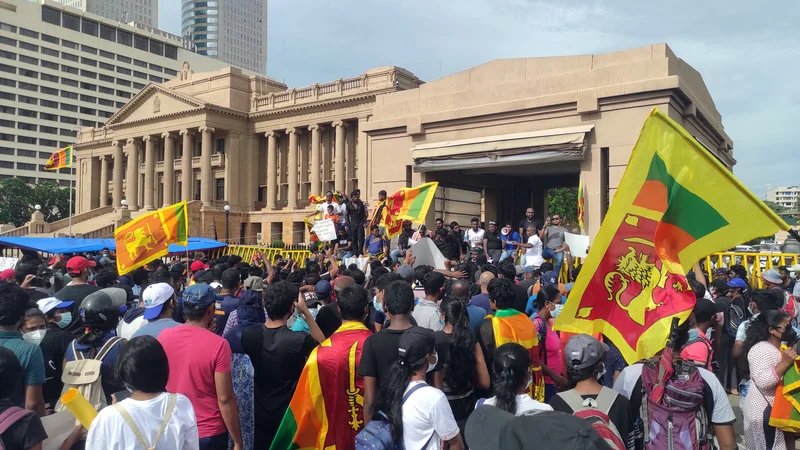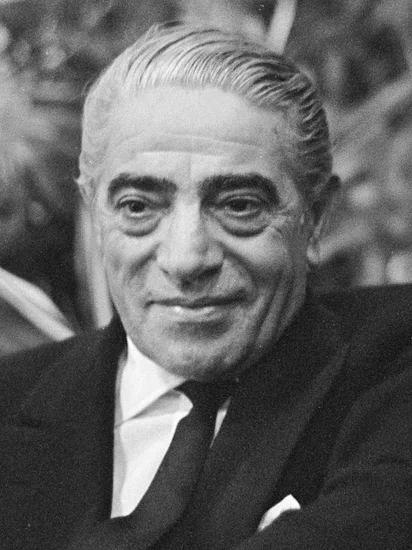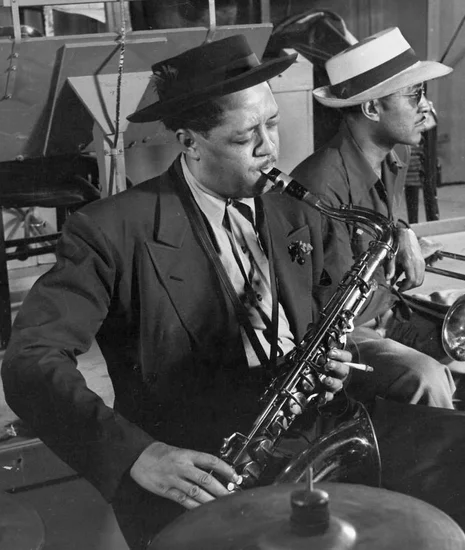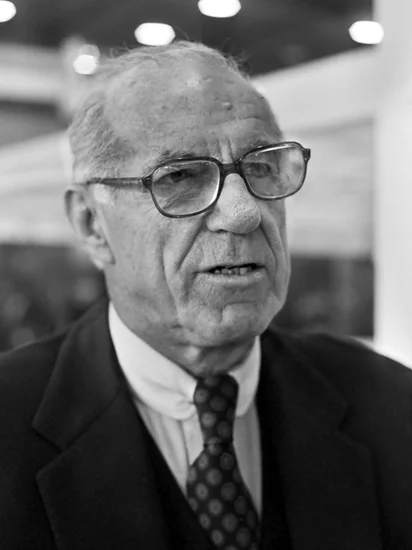March 15 stands as one of history’s most eventful days, witnessing the rise and fall of empires, groundbreaking discoveries, and moments that shaped our modern world across centuries of human achievement.

Politics and Government Events on March 15
1917 – Tsar Nicholas II Abdicates Russian Throne
Tsar Nicholas II of Russia formally abdicated the Russian throne on this pivotal day, bringing an end to the 304-year Romanov dynasty. The abdication marked the culmination of mounting political pressure and military defeats during World War I.
This momentous decision fundamentally altered the course of Russian history and paved the way for the Bolshevik Revolution. The fall of the Romanov dynasty created a power vacuum that would soon be filled by revolutionary forces.
1939 – Germany Occupies Czechoslovakia
Nazi Germany completed its occupation of Czechoslovakia, violating the Munich Agreement and shocking the international community. German forces moved swiftly to establish control over the remaining Czech territories.
This aggressive expansion demonstrated Hitler’s disregard for diplomatic agreements and marked a crucial step toward World War II. The occupation revealed the failure of appeasement policies and galvanized opposition to Nazi expansion.
1990 – Mikhail Gorbachev Elected Soviet President

Mikhail Gorbachev achieved a historic milestone by becoming the first President of the Soviet Union. His election represented a fundamental shift in Soviet governance and constitutional structure.
Gorbachev’s presidency would prove instrumental in the final years of the Soviet Union. His reformist policies and democratic initiatives helped transform the political landscape of Eastern Europe.
1965 – Johnson Advocates Voting Rights Act

President Lyndon B. Johnson delivered a powerful address to Congress, declaring “We shall overcome” while advocating for the Voting Rights Act. His speech directly responded to the violence and injustice witnessed during the Selma crisis.
Johnson’s passionate plea helped galvanize congressional support for comprehensive voting rights legislation. The presidential endorsement proved crucial in advancing civil rights protections for African Americans.
1951 – Iranian Oil Industry Nationalized
Iran nationalized its oil industry, fundamentally altering the country’s economic and political landscape. The bold decision challenged Western control over Middle Eastern petroleum resources.
This nationalization sparked international tensions and economic consequences that would reshape Iranian politics. The move demonstrated growing nationalist sentiment throughout the developing world during the Cold War era.
1922 – Fuad I Becomes King of Egypt
Fuad I ascended to the throne as King of Egypt following the country’s nominal independence from the United Kingdom. His coronation marked a new chapter in Egyptian sovereignty and national identity.
The transition represented a careful balance between Egyptian autonomy and continued British influence. Fuad’s reign would navigate complex relationships with colonial powers while establishing modern Egyptian governance.
1907 – Finland Holds First Parliamentary Elections
Finland conducted its first parliamentary elections as the Grand Duchy of Finland, marking a significant step toward democratic governance. The elections represented unprecedented political participation and representation.
These groundbreaking elections established Finland as a pioneer in democratic reform within the Russian Empire. The electoral process laid important foundations for Finnish independence and modern political institutions.
Military and Naval History on March 15
1943 – Germans Retake Kharkiv
German forces successfully retook the city of Kharkiv from Soviet armies during the Third Battle of Kharkiv. This victory represented a significant tactical achievement for German forces on the Eastern Front.
The battle demonstrated the continued effectiveness of German military tactics despite mounting pressures. However, this success would prove temporary as Soviet forces continued their westward advance.
1918 – Finnish Civil War Battle of Tampere Begins
The decisive Battle of Tampere commenced during the Finnish Civil War, marking a crucial confrontation between opposing forces. This engagement would prove pivotal in determining the war’s outcome.
The battle represented intense urban warfare and strategic positioning by both sides. The conflict’s resolution would significantly impact Finland’s political future and independence movement.
1919 – Kontrrazvedka Established
The Kontrrazvedka was established as the counterintelligence division of the Revolutionary Insurgent Army of Ukraine during the Ukrainian War of Independence. This organization played a crucial role in military intelligence operations.
The creation of this specialized unit demonstrated the sophisticated nature of revolutionary warfare tactics. Intelligence gathering and counterintelligence became increasingly important in modern military conflicts.
1919 – American Legion Founded
The American Legion was officially founded, creating one of the most influential veterans’ organizations in United States history. The organization emerged from the experiences of World War I veterans.
This founding established a powerful voice for veterans’ rights and interests in American politics. The American Legion would become instrumental in advocating for veteran benefits and patriotic education.
Science and Discovery Milestones on March 15
1986 – Hotel New World Collapses

The Hotel New World in Singapore collapsed catastrophically, killing thirty-three people and shocking the international engineering community. The disaster prompted extensive investigations into building safety standards.
This tragic event led to significant reforms in construction regulations and building inspection procedures. The collapse demonstrated the critical importance of proper engineering oversight in urban development.
2008 – Gërdec Ammunition Depot Explosion
Stockpiles of obsolete ammunition exploded at an ex-military depot in Gërdec, Albania, killing 26 people and causing widespread destruction. The massive explosion highlighted dangers associated with improperly stored military materials.
This disaster prompted international discussions about safe disposal of obsolete weapons and ammunition. The incident demonstrated the ongoing risks posed by poorly maintained military stockpiles worldwide.
1974 – Sterling Airways Flight 901 Crash

Sterling Airways Flight 901 crashed at Mehrabad International Airport in Tehran, Iran, killing fifteen people when the aircraft caught fire following landing gear collapse. The accident highlighted critical aviation safety concerns.
This tragedy led to improved emergency response procedures and aircraft safety protocols. The investigation contributed to better understanding of landing gear failures and fire suppression systems.
Cultural and Arts Events on March 15
1927 – First Women’s Boat Race

The inaugural Women’s Boat Race between the University of Oxford and the University of Cambridge took place on The Isis in Oxford. This historic event marked a significant milestone in women’s collegiate athletics.
The race established an important tradition in British university sports and women’s competitive rowing. This groundbreaking event paved the way for expanded opportunities in women’s collegiate athletics.
1921 – Talaat Pasha Assassinated

Talaat Pasha, former Grand Vizier of the Ottoman Empire and chief architect of the Armenian genocide, was assassinated in Berlin by 23-year-old Armenian Soghomon Tehlirian. The assassination brought international attention to Armenian suffering during World War I.
This dramatic event highlighted ongoing tensions surrounding the Armenian genocide and its aftermath. The assassination became a symbol of Armenian resistance and the pursuit of justice for historical atrocities.
2011 – Syrian Revolution Begins

The Syrian revolution commenced with widespread protests against the government, marking the beginning of a prolonged and devastating conflict. The uprising represented popular demands for political reform and democratic governance.
This revolution would evolve into one of the most significant conflicts of the 21st century. The events that began on this day would reshape Middle Eastern politics and create a global humanitarian crisis.
Religious and Social Events on March 15
2019 – Christchurch Mosque Shootings

Fifty-one people were killed in the horrific Christchurch mosque shootings, shocking New Zealand and the international community. The terrorist attack targeted worshippers during Friday prayers at two mosques.
This tragic event prompted global discussions about hate crimes, terrorism, and religious tolerance. The attack demonstrated the ongoing threat of extremist violence against religious communities worldwide.
2019 – Global Climate Strike
Approximately 1.4 million young people in 123 countries participated in a coordinated strike to protest climate change. This massive demonstration represented unprecedented youth activism on environmental issues.
The global strike demonstrated the power of youth-led movements in addressing climate change. This coordinated action helped elevate climate concerns to the forefront of international political discourse.
1961 – South Africa Withdraws from Commonwealth
South Africa announced its withdrawal from the Commonwealth at the 1961 Commonwealth Prime Ministers’ Conference, responding to international pressure over apartheid policies. This decision marked South Africa’s increasing isolation from the international community.
The withdrawal demonstrated the growing international opposition to apartheid and racial discrimination. This diplomatic isolation would continue until South Africa’s democratic transition in the 1990s.
Business and Economic Events on March 15
1978 – Ethiopia-Somalia Truce
Somalia and Ethiopia signed a truce to end the devastating Ethio-Somali War, bringing temporary peace to the Horn of Africa. The agreement represented diplomatic efforts to resolve territorial disputes and humanitarian crises.
This truce provided temporary relief from a conflict that had displaced thousands of people. The agreement demonstrated the importance of international mediation in resolving regional conflicts.
1991 – German Reunification Treaty Takes Effect
The Treaty on the Final Settlement with Respect to Germany came into effect, granting full sovereignty to the Federal Republic of Germany. This landmark agreement formally ended Cold War divisions and restored German unity.
The treaty’s implementation represented the successful conclusion of German reunification efforts. This diplomatic achievement marked a crucial step in ending Cold War tensions in Europe.
2019 – Hong Kong Protests Begin

The 2019-20 Hong Kong protests began with demonstrations against proposed extradition legislation. These protests would evolve into a broader movement for democratic rights and autonomy.
The protests represented significant challenges to Hong Kong’s political system and relationship with mainland China. These demonstrations would attract international attention and support for democratic movements.
Transportation and Infrastructure on March 15
1939 – Carpatho-Ukraine Independence Declaration
Carpatho-Ukraine declared itself an independent republic, though it would be annexed by Hungary the following day. This brief independence attempt represented regional nationalist aspirations during World War II.
The declaration highlighted the complex ethnic and political tensions in Central Europe. This short-lived independence demonstrated the challenges facing small nations during major international conflicts.
2022 – Sri Lankan Economic Protests Begin

The 2022 Sri Lankan protests began amid the country’s severe economic collapse, marking the start of widespread civil unrest. The protests reflected popular frustration with government mismanagement and economic hardship.
These demonstrations would eventually lead to significant political changes in Sri Lanka. The economic crisis and resulting protests highlighted the vulnerability of developing nations to global economic pressures.
1974 – Tehran Airport Disaster

The Sterling Airways Flight 901 disaster at Tehran’s Mehrabad International Airport killed fifteen people when the aircraft caught fire following landing gear collapse. This accident highlighted critical aviation safety concerns at international airports.
The crash prompted improvements in airport emergency response procedures and aircraft safety protocols. This tragic event contributed to enhanced aviation safety standards worldwide.
Sports and Recreation on March 15
1927 – Oxford-Cambridge Women’s Boat Race

The first Women’s Boat Race between Oxford and Cambridge Universities took place on The Isis in Oxford, establishing a prestigious tradition in collegiate rowing. This groundbreaking event marked a significant milestone in women’s competitive athletics.
The race created an important platform for women’s sports and university competition. This historic event paved the way for expanded opportunities in women’s collegiate athletics and rowing.
1986 – Singapore Hotel Collapse

The Hotel New World collapsed in Singapore, killing thirty-three people and prompting extensive investigations into building safety standards. This disaster highlighted the importance of proper construction oversight in urban development.
The collapse led to significant reforms in building codes and inspection procedures. This tragedy demonstrated the critical need for rigorous engineering standards in construction projects.
2008 – Albanian Ammunition Explosion
A massive explosion at a former military ammunition depot in Gërdec, Albania, killed 26 people and caused widespread destruction. The disaster highlighted the dangers of improperly stored military materials.
This explosion prompted international discussions about safe disposal of obsolete weapons and ammunition. The incident demonstrated ongoing risks posed by poorly maintained military stockpiles worldwide.
Notable Births on March 15
1925 – Ruth Bader Ginsburg

Ruth Bader Ginsburg was born and would become one of America’s most influential Supreme Court justices. Her childhood experiences shaped her lifelong commitment to gender equality and civil rights.
Ginsburg’s legal career revolutionized women’s rights and constitutional law. Her pioneering work helped establish fundamental principles of gender equality in American jurisprudence.
1932 – Alan Bean

Alan Bean entered the world and would become the fourth human to walk on the moon during the Apollo 12 mission. His early fascination with flight and exploration shaped his future career path.
Bean later became a renowned space artist, creating unique paintings of lunar landscapes. His artistic work helped preserve the wonder and achievement of human space exploration.
1916 – Harry James

Harry James was born and would become one of America’s most celebrated trumpet players and bandleaders. His musical talents emerged early in his childhood.
James’s big band performances captivated audiences throughout the swing era. His trumpet virtuosity and leadership helped define the sound of American popular music.
1975 – Eva Longoria

Eva Longoria was born and would become a prominent actress and producer. Her early performances demonstrated natural talent and charisma that would define her career.
Longoria’s television and film work made her one of the most recognizable Latina actresses in Hollywood. Her success helped break barriers for Hispanic performers in mainstream entertainment.
1975 – will.i.am

will.i.am was born and would become a pioneering hip-hop artist and music producer. His innovative approach to music production revolutionized popular music.
His work with the Black Eyed Peas and solo career established him as a major force in contemporary music. will.i.am’s technological innovations helped bridge music and digital media.
1939 – David Cronenberg

David Cronenberg was born and would become one of cinema’s most distinctive directors. His unique vision and storytelling approach revolutionized horror and science fiction filmmaking.
Cronenberg’s films explored themes of technology, body horror, and human psychology. His innovative cinematography and narrative techniques influenced generations of filmmakers.
1943 – Sly Stone

Sly Stone was born and would become a revolutionary musician and record producer. His groundbreaking work with Sly and the Family Stone transformed popular music.
Stone’s innovative fusion of rock, soul, and funk created a new musical paradigm. His artistic vision helped define the sound of 1960s and 1970s American music.
1946 – Bobby Bonds

Bobby Bonds was born and would become a pioneering baseball player known for his speed and power combination. His athletic abilities revolutionized outfield play.
Bonds’s career established him as one of baseball’s most dynamic players. His son Barry would later become one of the sport’s greatest home run hitters.
Notable Deaths on March 15
1937 – H.P. Lovecraft

H.P. Lovecraft, the influential American horror writer, died at age 46 after creating some of literature’s most enduring supernatural fiction. His cosmic horror stories revolutionized the genre.
Lovecraft’s literary legacy would grow exponentially after his death. His Cthulhu Mythos and atmospheric horror writing influenced countless authors and filmmakers.
1975 – Aristotle Onassis

Aristotle Onassis, the Greek shipping magnate and business tycoon, died after building one of the world’s largest shipping empires. His wealth and influence made him a global celebrity.
Onassis’s marriage to Jacqueline Kennedy brought him international fame. His business acumen and shipping innovations transformed global maritime commerce.
1959 – Lester Young

Lester Young, the legendary jazz saxophonist, died at age 49 after revolutionizing jazz improvisation and saxophone technique. His innovative playing style influenced generations of musicians.
Young’s smooth, melodic approach to jazz saxophone created a new standard for the instrument. His contributions to jazz music helped define the swing era sound.
1962 – Arthur Compton

Arthur Compton, the Nobel Prize-winning physicist, died after making groundbreaking contributions to quantum mechanics and X-ray physics. His research advanced fundamental understanding of atomic structure.
Compton’s work on X-ray scattering provided crucial evidence for quantum theory. His scientific discoveries helped establish the foundation of modern physics.
1998 – Benjamin Spock

Benjamin Spock, the influential pediatrician and author, died after revolutionizing child-rearing practices with his famous parenting guide. His approach emphasized understanding and nurturing children.
Spock’s “Baby and Child Care” became one of the best-selling books in history. His child-rearing philosophy influenced generations of American parents and families.
2001 – Ann Sothern

Ann Sothern, the accomplished actress and singer, died after a successful career spanning film, television, and radio. Her versatile performances entertained audiences for decades.
Sothern’s television work helped establish her as a pioneer in the medium. Her comedic timing and dramatic range made her one of entertainment’s most respected performers.
2011 – Nate Dogg

Nate Dogg, the influential rap artist and singer, died after helping define West Coast hip-hop music. His melodic rap style and collaborations shaped the genre’s development.
Nate Dogg’s vocal contributions to rap music created a new paradigm for hip-hop artists. His work with Snoop Dogg, Dr. Dre, and other artists helped establish G-funk music.
2016 – Asa Briggs

Asa Briggs, the renowned British historian and academic, died after making significant contributions to social and cultural history. His scholarship influenced understanding of modern British society.
Briggs’s historical research and writing helped establish social history as a legitimate academic discipline. His work on Victorian England and broadcasting history became foundational texts.
Holidays and Observances on March 15
Ides of March
The Ides of March holds special significance in the Roman calendar and Western cultural memory. This date became synonymous with betrayal and political upheaval following Julius Caesar’s assassination.
The observance continues to resonate in modern culture as a symbol of political intrigue. Educational institutions and cultural organizations frequently commemorate this historically significant date.
World Consumer Rights Day
World Consumer Rights Day raises awareness about consumer protection and rights worldwide. This international observance promotes fair trade practices and consumer education.
The day encourages governments and organizations to strengthen consumer protection laws. Various advocacy groups use this opportunity to highlight consumer issues and promote responsible business practices.
Hungarian National Day
Hungary celebrates its National Day commemorating the Hungarian Revolution of 1848. This important observance honors the country’s struggle for independence and democratic ideals.
The celebration includes parades, cultural events, and patriotic displays throughout Hungary. This national holiday reinforces Hungarian identity and historical consciousness among citizens.
Constitution Day Belarus
Belarus observes Constitution Day, celebrating the adoption of its national constitution. This official holiday marks the establishment of the country’s legal and governmental framework.
The observance includes governmental ceremonies and civic education programs. Citizens participate in various activities that promote understanding of constitutional principles and democratic governance.
International Day to Combat Islamophobia
This recently established observance promotes religious tolerance and combats discrimination against Muslim communities worldwide. The day encourages dialogue and understanding between different religious groups.
Educational institutions and religious organizations coordinate programs to address prejudice and promote interfaith cooperation. The observance highlights the importance of religious freedom and mutual respect.
